Jodi Wilson spent 2½ years travelling around Australia in a caravan with her husband and four young kids after selling or giving away 80 per cent of the family’s belongings.
But it was a visit to Tasmania which ultimately changed the trajectory of her family’s life.
They decided to trade their nomadic lifestyle and settle in our island state, where they now live a slower paced, mindful and less cluttered lifestyle on Tasmania’s North West Coast.
Born in England, Wilson came to Australia when she was just two years old and spent most of her life on the NSW coast.
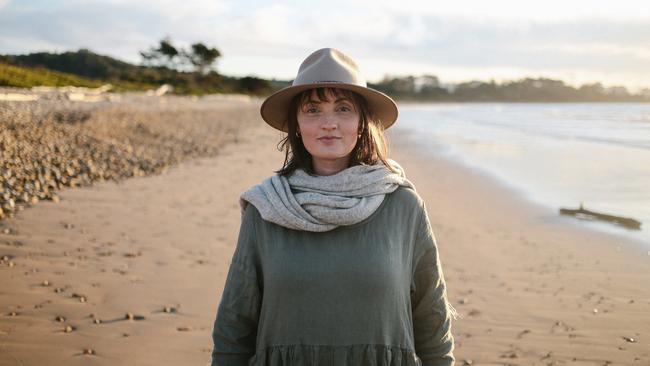
She had a partner, Daniel, and four young children – Che, Poet, Percy and Marigold – as well as a successful career as a writer, photographer and yoga instructor. But something just didn’t feel right.
“We had spent seven years saving a house deposit,’’ Wilson recalls.
“And we were living a busy family life that naturally comes with four children.’’
But the houses they were looking at buying weren’t exciting Wilson. Despite all their savings, the only houses they could afford needed significant renovations and were in suburbs they didn’t love.
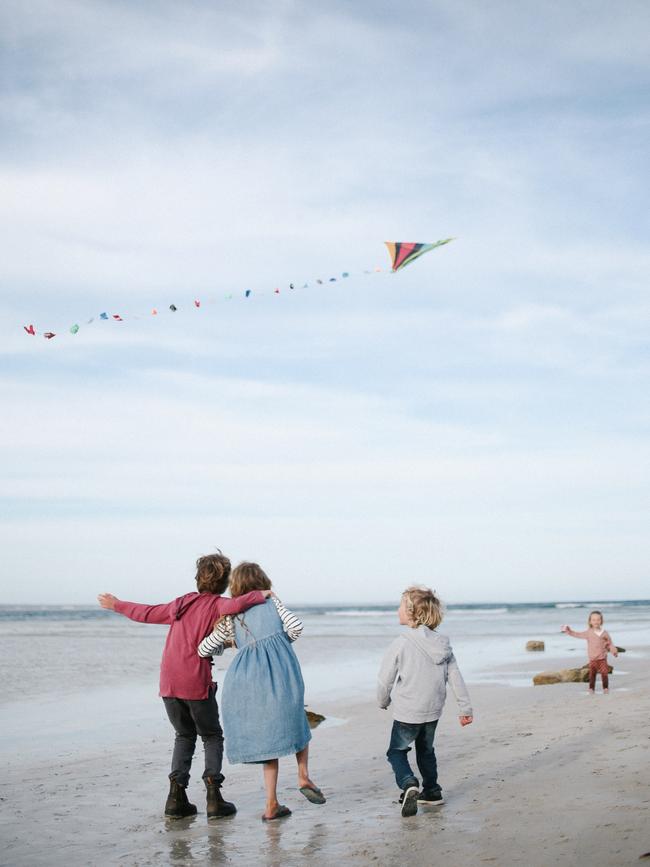
So, in 2018, after watching their son’s school performance – in which children recited lines from Australian children’s author Alison Lester’s picture book Are We There Yet?, a tale inspired by her family’s three-month road trip around Australia in a camper trailer – they decided they, too, could embark on a family adventure.
“We recognised that we were in a real moment of choice and change,’’ Wilson explains.
“I just had this realisation that we were in this golden pocket of time, when our eldest was 10 and our youngest was three months old, and I just knew that if I got to the end of my life and I hadn’t done a trip in a caravan with my kids I would regret it.’’
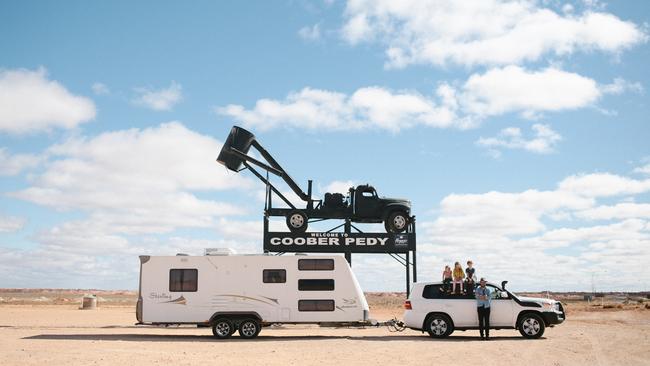
Soon they had spent their house deposit on a four-wheel drive and a caravan and were frantically clearing out the home they were renting, in preparation for their travels. After eight months of discarding the majority of their possessions – no small feat when you’re a family of six and live in a house full of stuff – they waved their conventional life goodbye and embraced a new way of living.
“We had never caravanned or camped before,’’ the 38-year-old admits.
“I thrive on predictability, I have a massive fear of change. But intuitively I knew I had to change everything within my life that didn’t align with my values.’’
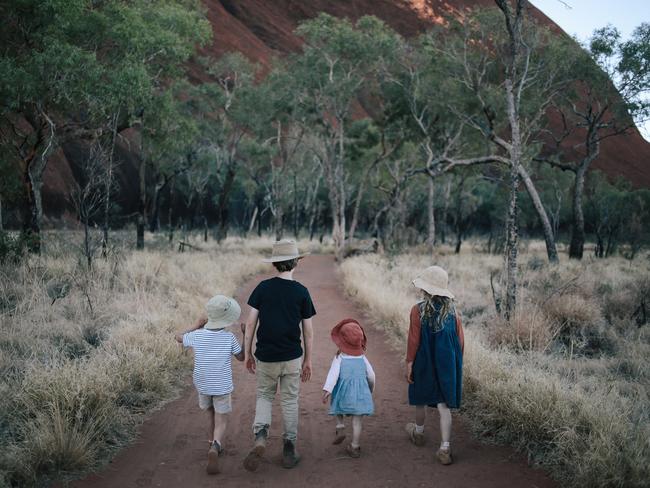
The idea of travelling was not to tick things off a list, but rather just to slow down and spend more quality time together as a family, unburdened by the daily grind and the routines of school and work life.
But Wilson got more than she bargained for when the family arrived in Tasmania about six months into their adventure.
“We were six months in and then we had major car issues, we actually had to go back to the mainland to get our Landcruiser fixed,’’ Wilson recalls.
“The next summer we came here again and one thing kind of led to another and we just decided to stay and it’s the best decision we’ve ever made, really.
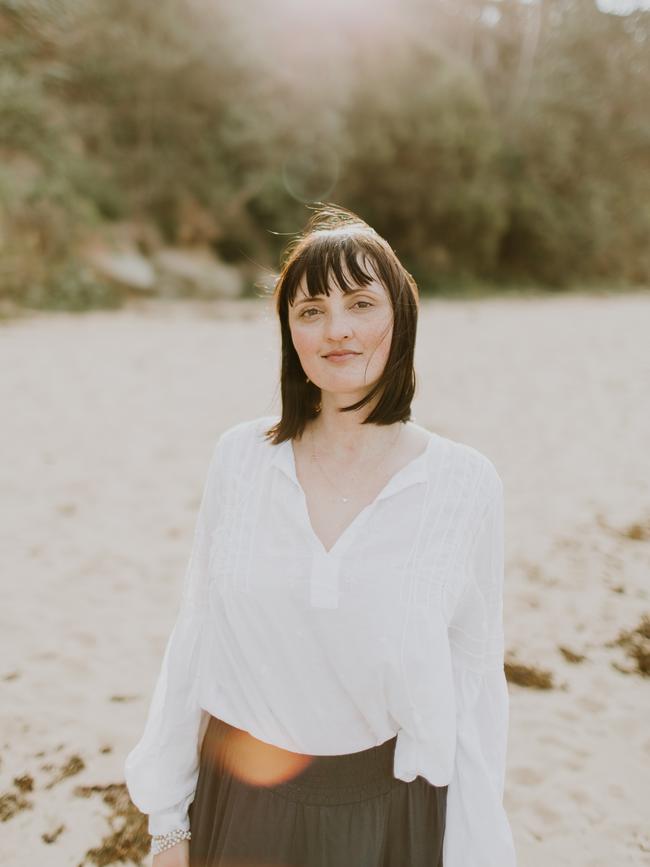
“I was born in England, and spent 34 years living in NSW and I’d never really felt a strong sense of belonging there. But as soon as I came to Tassie I felt this really strong sense of belonging, I love the distinct seasons, I love the slow pace of life.
“It’s a privilege to be among so much natural beauty.’’
Wilson also loves the friendly and easygoing people she’s met in Tasmania.
“No one has ever asked me what I do,’’ Wilson says.
“It’s not important to them. But in NSW that was the first question people asked when you met them. Here, everyone just takes you as you are.’’
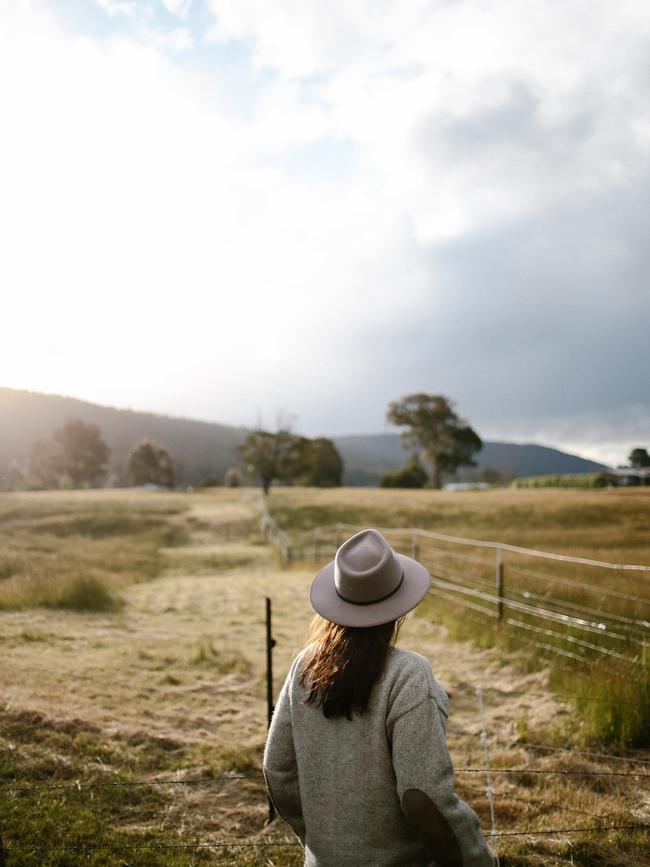
And Tasmania’s relatively affordable house prices – compared to what they’d experienced in NSW – were also part of the appeal.
“We very consciously chose to live here because, on the road, we lived so well with so little,’’ Wilson says.
“And I suppose when you learn to live well with so little you kind of ask yourself, ‘what do you need to live well?’
“For us, it was having time, and creating a lifestyle where we didn’t have to work just to live.
“One of the reasons we moved here as well, was that we could afford to buy here and we wouldn’t have a massive mortgage.
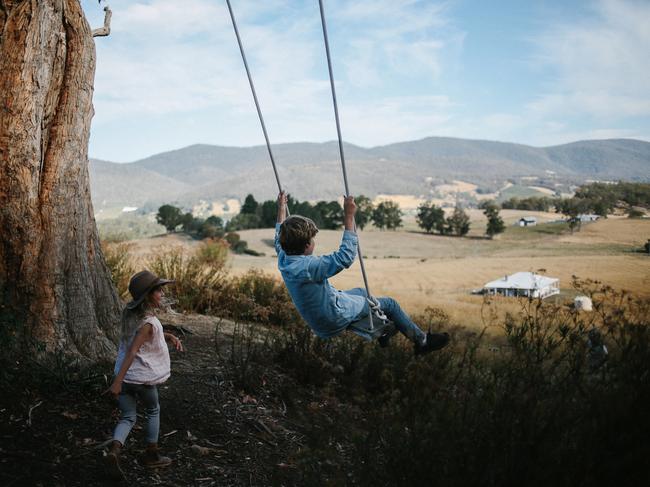
“And ideally we didn’t always want to be in the car … when we were travelling we loved parking in small towns, where we might not get in our car for a week because we could walk everywhere. So we wanted to live in a small town, where we could walk to get groceries and use the local library – we didn’t want to be driving here, there and everywhere ferrying the children around.’’
They have settled into a 1950s three-bedroom home, not far from the beach at Penguin, in the state’s North West. They also have a “fifth child” now – a pet border collie.
Wilson is up at 5.30am each morning, and her day typically starts with a walk on the beach with the dog.
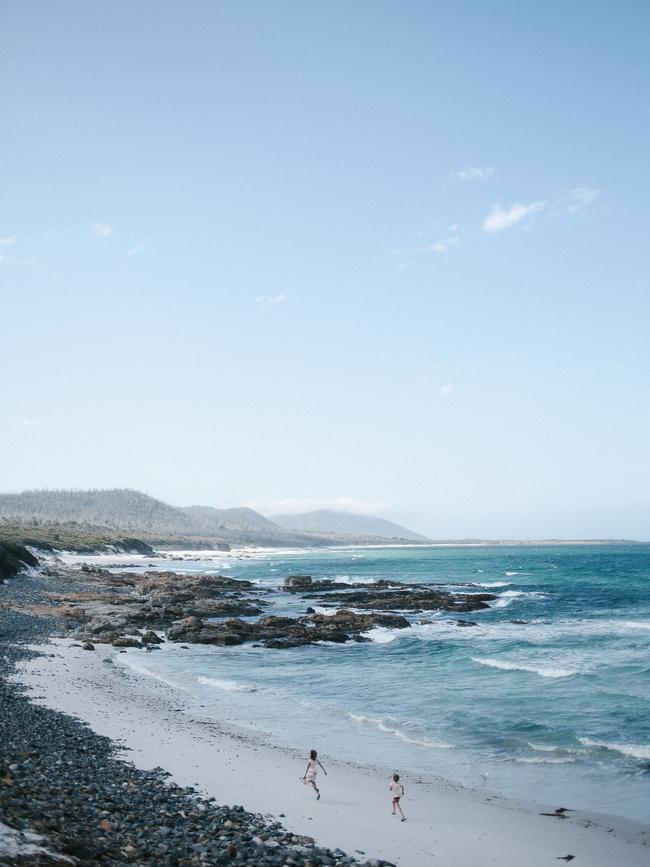
She enjoys collecting shells and sea glass and finds that spending time in nature helps her live more mindfully and with greater motivation.
“I just love the distinct weather (in Tasmania),’’ Wilson says.
“I love how it changes, I find it really inspiring, and really motivating, creatively.
“Yesterday I was watching the sea fog roll in over the ocean, it’s just such a stunning weather phenomenon.
“It’s a privilege just to wake up every morning and just feel gratitude for being in Tasmania.’’
Wilson says when you have spent 2½ years living in a caravan, with limited possessions, even having something as simple as carpet then feels like a luxury.
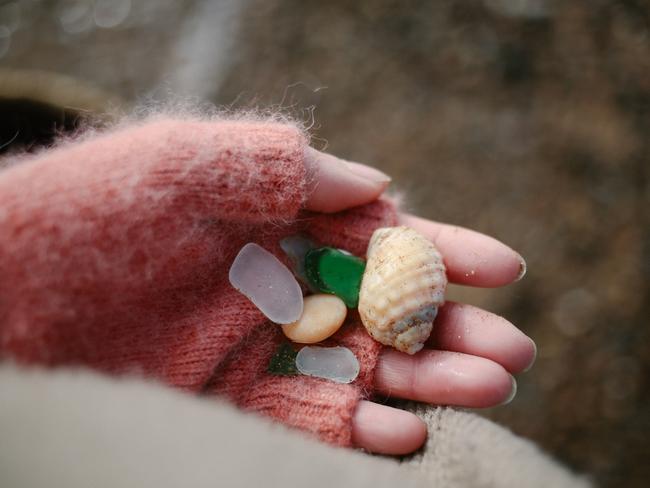
She says living a more frugal and laid-back lifestyle had taught her many valuable life lessons which inspired her to release her first book, Practising Simplicity, in February this year.
She says the book isn’t “authoritative or bossy” but is rather a tale of the family’s travels which also offers gentle suggestions on how to live a more unhurried life. And it’s something readers have embraced.
“What I learnt on the road, was the importance of practising simplicity,’’ Wilson says.
“And it seems to have really resonated with people. Confronted by the rising cost of living, confronted by the uncertainty of the pandemic and the climate crisis, I think now – more than ever – people are learning to focus on today. They’re not making five-year plans any more, I think people have learnt that you don’t know what’s going to happen in a year’s time, let alone in five years.
“People desperately want to live more simply, or live more mindfully.’’
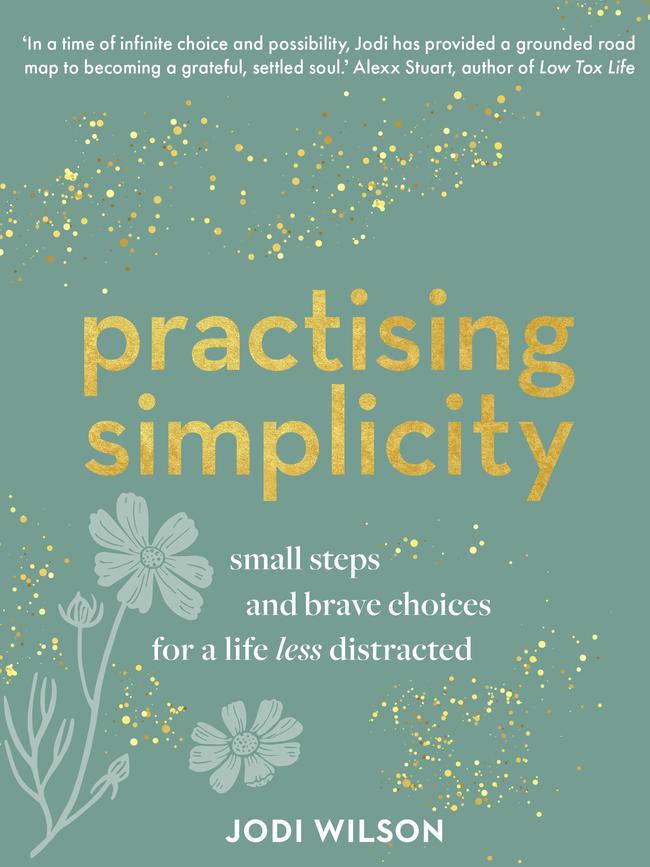
Since the book was published, Wilson has started a series on Instagram (@practisingsimplicity), where every Sunday afternoon she shares five new ways to practise simplicity.
She says sometimes that might mean cooking up a big healthy dinner for your family, other days it might be realising that you’re too tired to cook and you’re mentally drained and getting takeaway might be a better option for your family.
It could also mean buying second-hand items instead of buying new. Or clearing out items you no longer need. Or embracing the notion of a 15-minute speed clean.
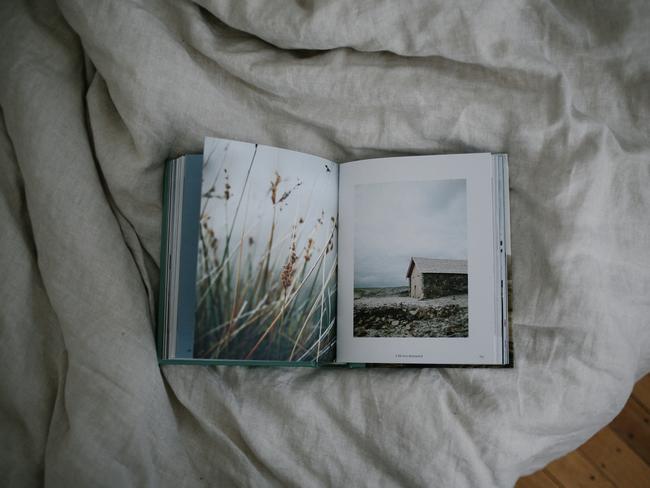
Or convincing your children to ditch some of their extra-curricular activities in favour of some more rest and unstructured play time. Or switching off technology and stepping outside into the fresh air.
“They’re just really simple, actionable suggestions that people can embrace,’’ Wilson says.
She says for some people, the idea of simple living can seem overwhelming, particularly if they are trying to implement numerous larger changes all at once.
“People say ‘I can’t do that, it’s too hard, my life is already overwhelming as it is’,’’ Wilson says.
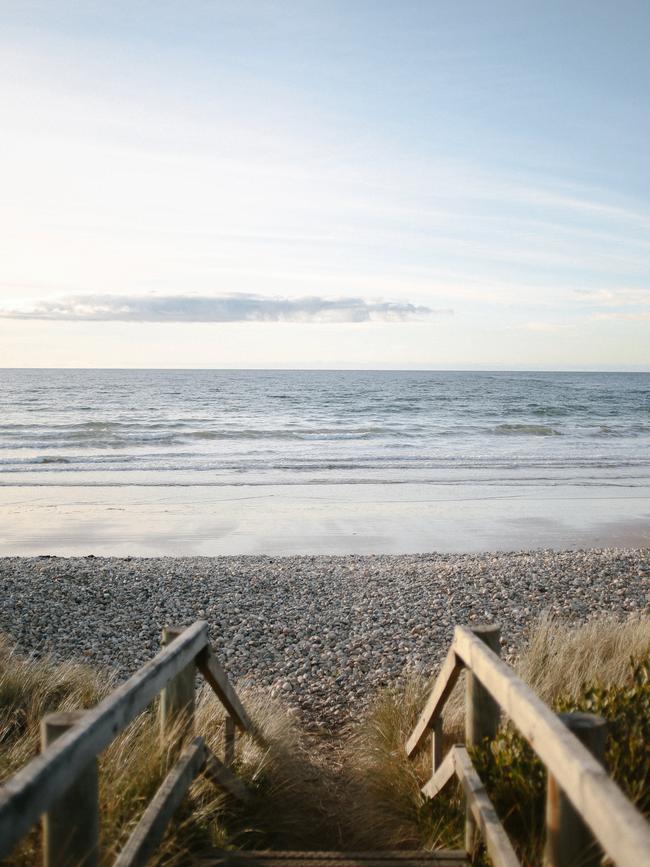
But the trick, she says, is to break things down and start small, and you’ll soon see big results.
“Regardless of where or how you live it’s just about making small changes every day,’’ Wilson says.
She says sometimes it’s important to put down your to-do list and go outside and laze on the grass with your kids.
She says parents are often telling their kids to go outside and play in the fresh air, but many parents don’t heed their own advice.
“When you live in a small space like a caravan, you naturally gravitate outside,’’ says Wilson, whose children are now aged 5, 7, 11, and 15.
“I was spending 10 to 12 hours a day outside in the elements, in red dirt and mud and deserts and forests all these amazing places I’d never really sunk into before. And the result of that, was it was the most potent salve for my ‘overwhelm’.
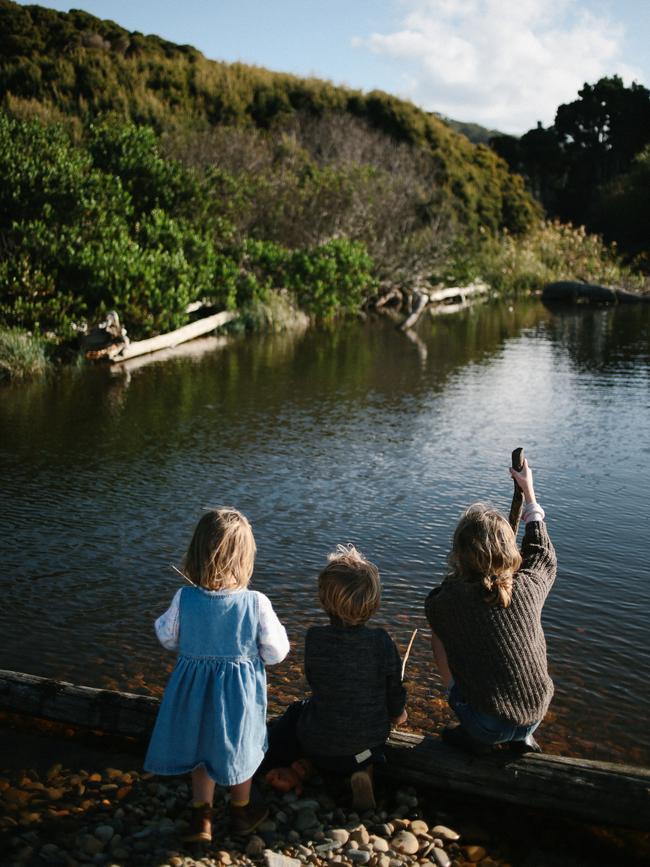
“All those studies about nature therapy are so very true. We know that there are so many studies that show that being in nature – and being barefoot on grass, and being in water – is so beneficial to our physical and mental health.
“We tell our kids to go outside and yet we never give ourselves the same advice because we’re trapped by all the to-dos in the house.
“It’s hard to pull ourselves away from that, those jobs are going to have to get done at some time. But 10 minutes outside is totally beneficial to you, it just kind of gives you perspective as well.’’
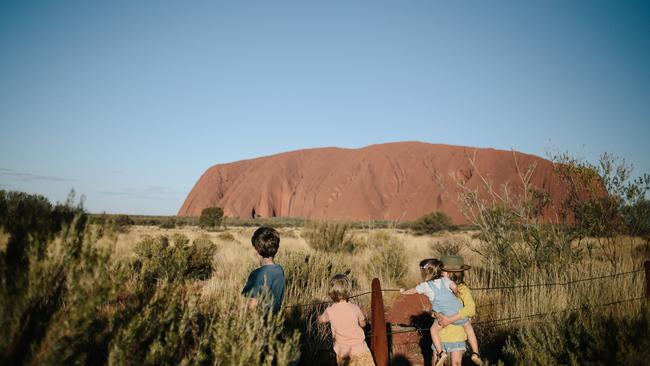
After living in a van for so long, Wilson knew returning to normal life would be challenging.
“I came out of it and thought ‘I can’t go back to a life of rushing here, there, and everywhere’,’’ she says.
“I felt like an anxious person before, I was easily overwhelmed. I was living a busy family life that naturally comes with four children. I just had a totally different mindset … we live a much slower life now than we did before.’’
And she says that’s partly due to finding their feet in Tassie.
“It’s the slow pace here that just seeps into you,’’ she explains.
“No one is in a rush. And if something is 10 minutes away it only takes 10 minutes to get there.’’
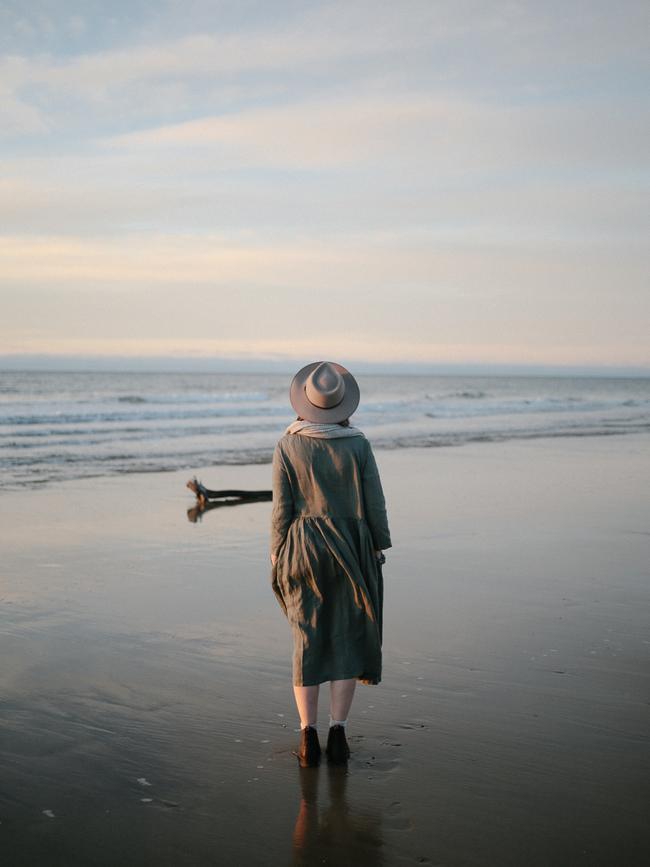
Wilson works from home and is excited about her latest project, a book entitled The Complete Australian Guide to Pregnancy and Birth, which she has written with Sophie Walker, the founder and host of the Australian Birth Stories podcast which has had
10 million downloads.
The women, who are both mothers, felt there was a major gap in the market for a comprehensive pregnancy and birth book with an Australian focus.
Wilson says the book draws on the expertise of dozens of midwives, obstetricians, GPs, psychologists and other peri-natal health specialists to offer essential, up-to-date information about conception, pregnancy, labour, birth and the early post-partum period in a “very conversational and accessible way”. It also includes plenty of first-hand birthing experiences from real women.
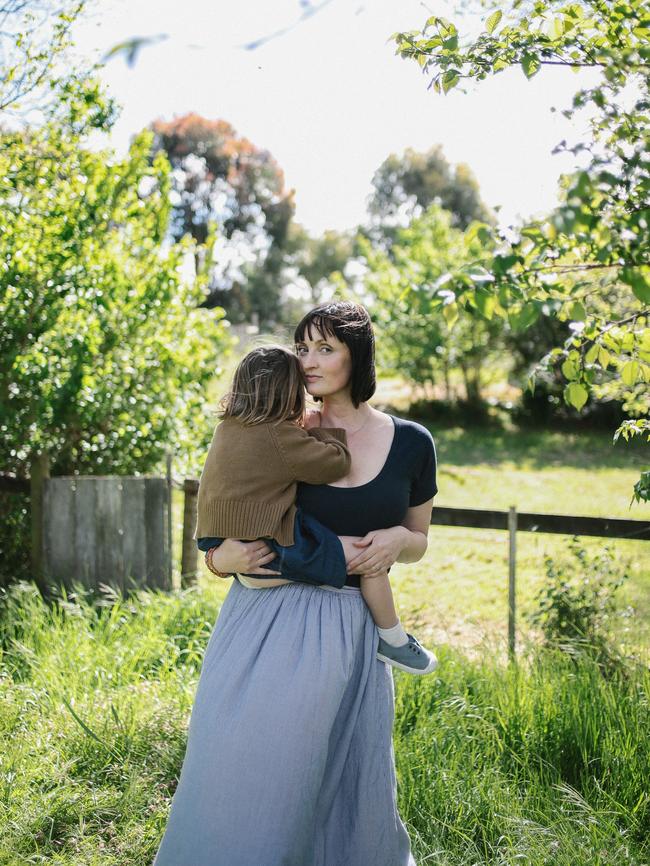
“There are a lot of statistics and facts, and evidence-based information, and a lot of really kind and gentle advice,’’ Wilson says.
A pre-natal yoga teacher, Wilson says she has always been fascinated by the “life-altering” nature of childbirth.
She says one third of Australian women suffer from birth trauma, and she hopes that if women are armed with better information they will be better able to care for themselves as they prepare for birth and beyond. “The essence of the book is that a positive birth experience is not dependant on how you’re birthing or where you’re birthing,’’ she says.
Rather, the book encourages women to be well-informed, so they can take good care of themselves throughout their pregnancy to ensure the best possible outcomes for both mother and baby.
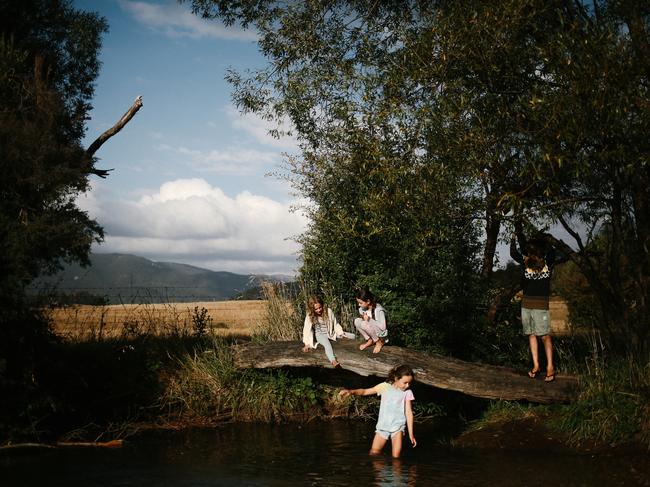
The book also includes a chapter on navigating miscarriage.
“One in four pregnancies end in miscarriage,’’ Wilson says.
“It’s such a common experience, yet so many women are blindsided by it. There are very few resources out there.’’
The book is due for release on January 31, and as Wilson counts down excitedly to the launch date, she will continue to focus on practising simplicity and living her best life in Tasmania.
She says ditching most of her belongings to live in a van was a big job, but it was worth it.
“In the van, everything we took with us had to have a purpose and had to be considered for its weight and its size,’’ she says.
“It also made me realise we don’t need a lot to live. And when something broke we’d just go to the local op shop and replace it. It’s a practice we still maintain today.
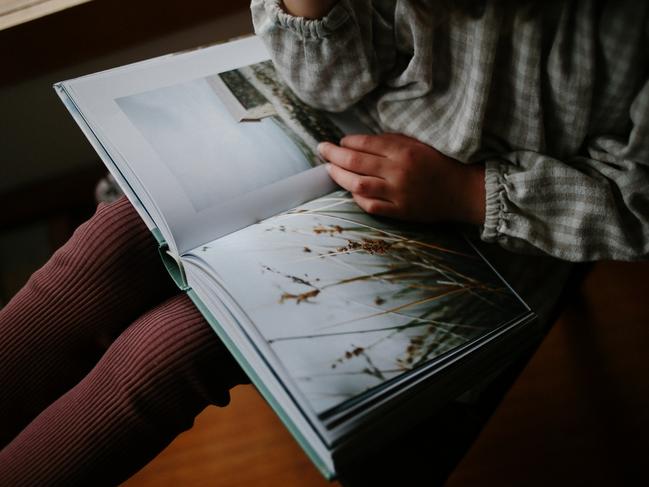
“Time is what we were chasing on the road. Not stuff. When I was getting rid of everything I’d think ‘how long did I have to work for, to buy that $50 vase?’ We live in a consumerist society, it’s fed into us that we want, want, want. But the more stuff you have you’ve got to maintain it. Everything we need already exists in the world.’’
“Our aim was to spend time together and be together without distraction. And I’ve carried that thought process with me.
“Maybe that was the biggest lesson for me … I let go of a whole house full of stuff and then on the road we just realised how well we can live, we just don’t need a lot to live well. It prompted me to ask myself ‘What do I need to live well? What matters to me? What’s important?’.’’
She says travelling still came with daily challenges but gave her fresh insight into what is really important in life.
“When you’re living on the road you’re still washing, you’re still aware of groceries, you’re still wrangling kids,’’ Wilson explains.
“You’re thinking ‘do we have enough water on board? How long will 180 litres last us?
Do we have enough solar power? Can we have a hot shower?’.
“You realise when you live in a very back-to-basics way how good a hot shower is or how good a freshly-bathed toddler smells. Or how delicious a cafe-made coffee is.’’
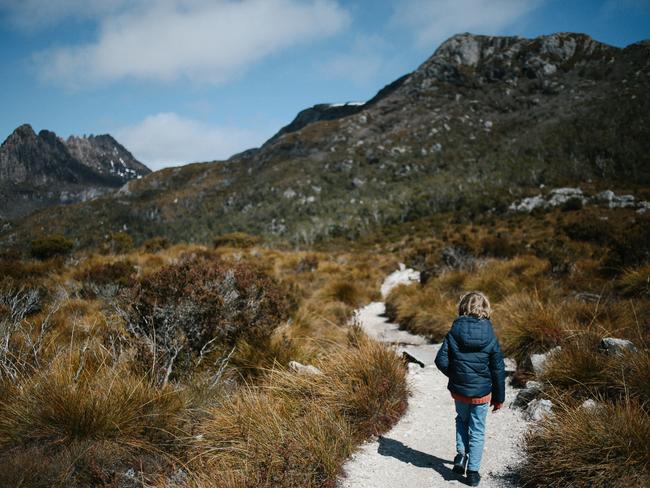
Wilson says in modern life it’s easy to be distracted by technology and the “doom scroll” of social media.
But it is possible to find solitude.
“Our focus is being stolen very, very, easily,’’ Wilson says.
“No one has all the answers for living a perfect life, but being aware is a really big powerful first step, being aware of how you want to live. And making choices every day that set you off on that path.’’•
Practising Simplicity by Jodi Wilson (Murdoch Books, $32.99) is available now. The Complete Australian Guide to Pregnancy and Birth, written by Jodi Wilson and Sophie Walker (Murdoch Books, $34.99) will be released on January 31 and can be pre-ordered now. practisingsimplicity.com

‘Favourite place in the world’: Why actor Pamela Rabe loves Tassie life
She plays commanding, complex and sometimes kooky characters in some of Australia’s best-known films and TV shows. But actor Pamela Rabe also enjoys living a simpler existence in Tasmania
Premier falls, state in limbo: Inside Tassie’s political earthquake
Tasmanians are set to return to the polls after a Labor motion of no-confidence in Premier Jeremy Rockliff passed the House of Assembly by one vote. DAVID KILLICK explains how it all went down and what happens next.